10 Books Every Programmer Must Read
Books introduce developers to new ideas and points of view, which can make them think about their own lives. The tech world needs people who can take ideas and turn them into new concepts.
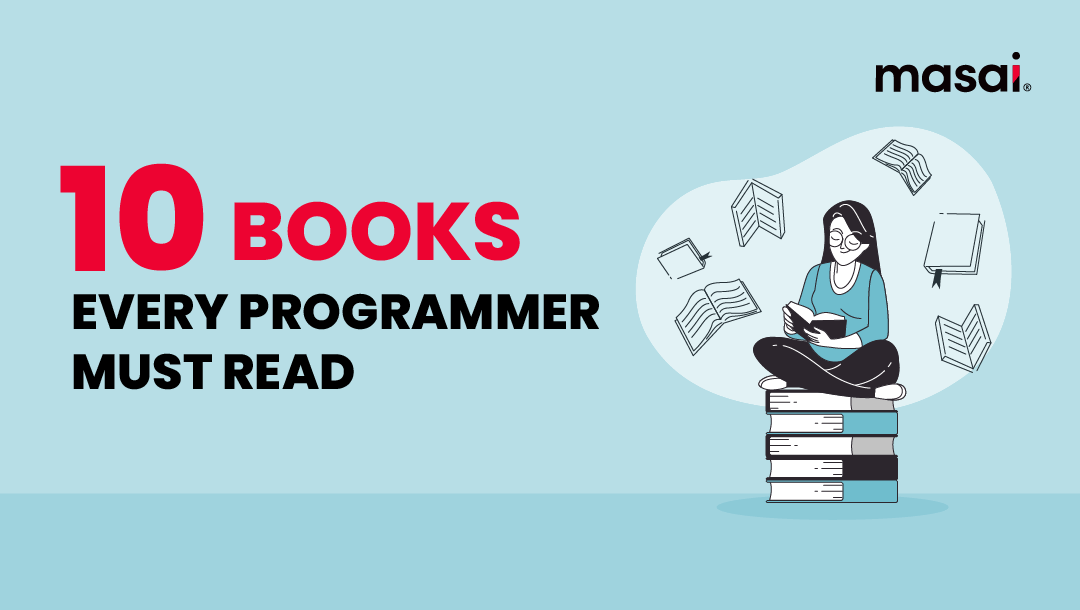
Discover the top 10 must-read books for programmers! These books teach coding, nurture problem-solving skills, and offer insights into the world of technology.
Books inculcate wisdom, and reading books sharpens and trains a coder. Programming is all about logical thinking; these books help you troubleshoot a technical problem better.
Introduction
10 Books Every Developer Should Read
These books explain the semantics and fundamentals of programming languages and guide you to become a great coder and programmer. Here is a compilation of the 10 best programming books that Masai's team of developers would suggest that every developer read to write professional code.
“Learn from the mistakes of others. You can't live long enough to make them all yourself.”
― Eleanor Roosevelt
Books introduce developers to new ideas and points of view, which can make them think about their own lives. The tech world needs people who can take ideas and turn them into new concepts. This is how the future is made.
Programming is consistently ranked as one of the most in-demand careers in the world. It paves the way for tens of thousands of new employment and education prospects. However, it demands constant practice and study, and what better way to study than through books?
So here is a list of ten books that you as a programmer must read. Not only will they teach you technical semantics and syntax but also how to analyse, organise, create, and solve problems.
Clean Code - A Handbook of Agile Software Craftsmanship
By Robert C. Martin
As the name implies, "clean code" is focused on writing code that is well-designed, readable, and expresses the coder’s intention. It is a manual for developers who want to understand the art of software craftsmanship.
This book is divided into two parts. The first part covers principles and suggestions for writing clean code. The second part dives into separating different classes, naming variables properly, and designing testable concurrent code. The second section of this book primarily consists of exercises to practice solving problems using various principles.
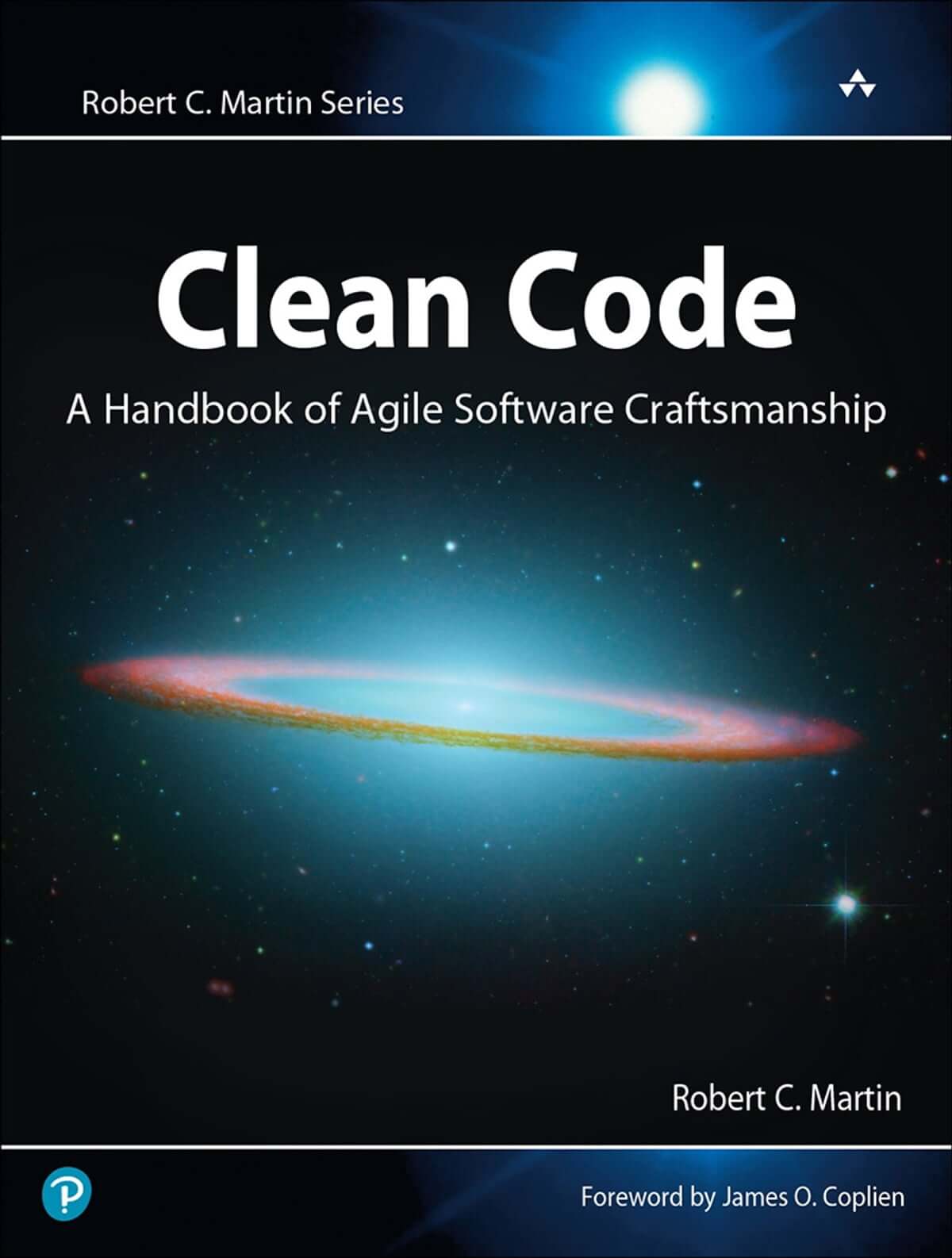
“Indeed, the ratio of time spent reading versus writing is well over 10 to 1. We are constantly reading old code as part of the effort to write new code. ...[Therefore,] making it easy to read makes it easier to write.”
― Book Excerpt
This epic book offers a comprehensive insight into the distinction between bad and good code, ways to modify a bad code to a good one, and the tricks to format code to be optimum readable. Moreover, you also get an inkling of unit test and development practices that are test-driven along with various related concepts.
The book’s content is easy to understand, clean, and very well crafted. It contains numerous examples to help you understand why clean code is vital for a programmer. This is not a book to just read, but to also develop a solid understanding of how to write a clean program.
The Clean Coder: A Code of Conduct for Professional Programmers
By Robert C. Martin
This book, the sequel to Clean Code by Robert C. Martin, is not about data structure & Algorithms, or patterns. Rather, it is a simple, easy-to-read book that illustrates the concepts via real-life scenarios. Following a set of certain behaviors and attitudes is one of the most essential methods to separate professional programmers from the wider population of "people who code."
The Clean Coder is easy to read and has both advice and stories from the author's life. The use of dialogue in the book has an effective way to illustrate communication problems, such as the overuse of the word "done."
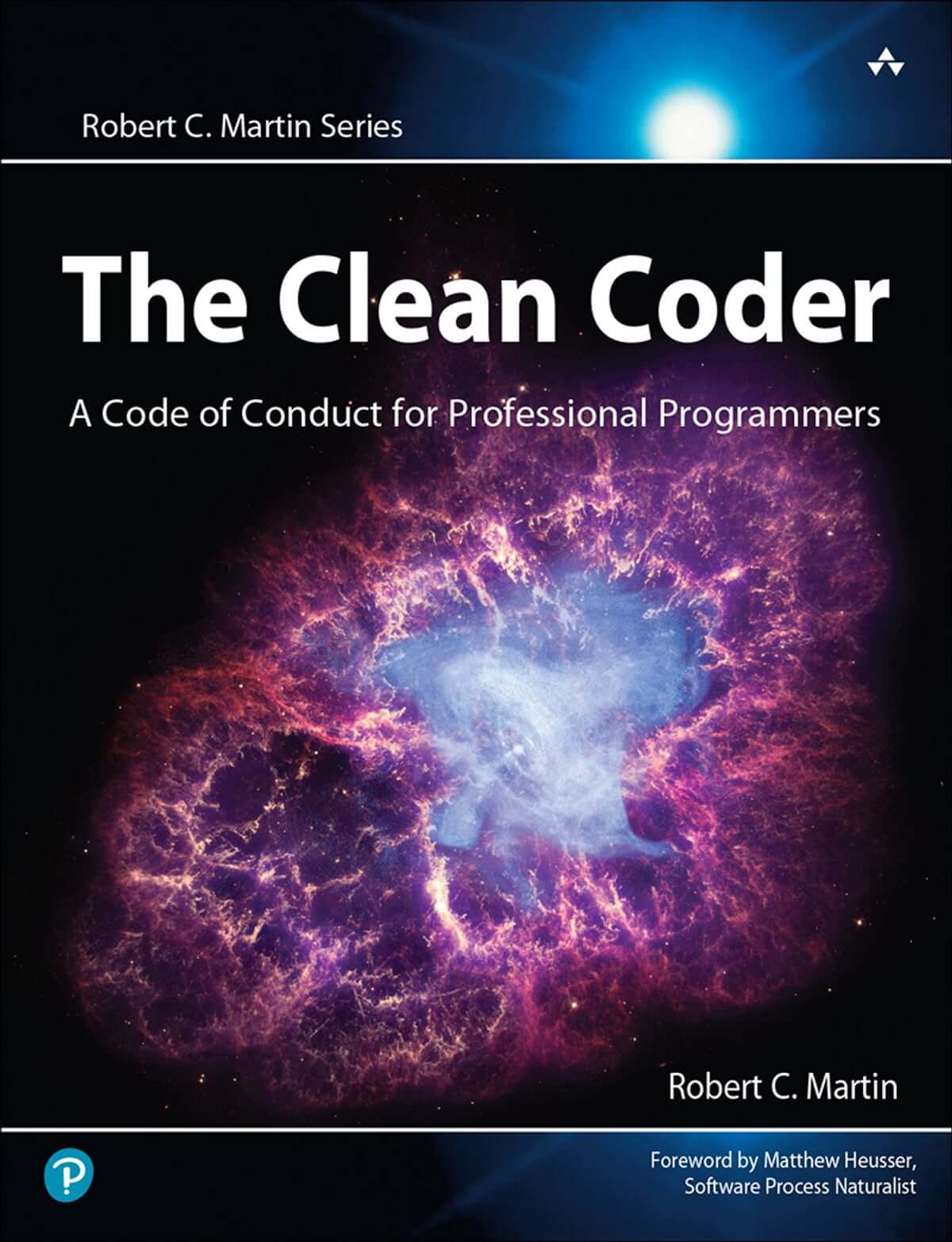
“A craftsman is someone who works quickly, but without rushing, who provides reasonable estimates and meets commitments. A craftsman knows when to say no, but tries hard to say yes. A craftsman is a professional.”
― Book Excerpt
Its writing style is very opinionated, resolute, and clean. The author explains his professional experiences, his mistakes, his practices, time management, estimations, and working under pressure.
Refactoring: Improving the Design of Existing Code
By Martin Fowler
Refactoring is the process of rewriting software without changing how it works at its core. Instead, it involves cleaning up the code to improve its readability and testability, and to keep it up to date. This book lists a set of refactoring techniques, most of which are about Object Oriented Programming (with lots of Java examples) and Agile methods.
It also provides a 'toolbox' for you to clean up and improve the design of your code. The author expertly covers each approach and shows how to employ these strategies wherever they are required.
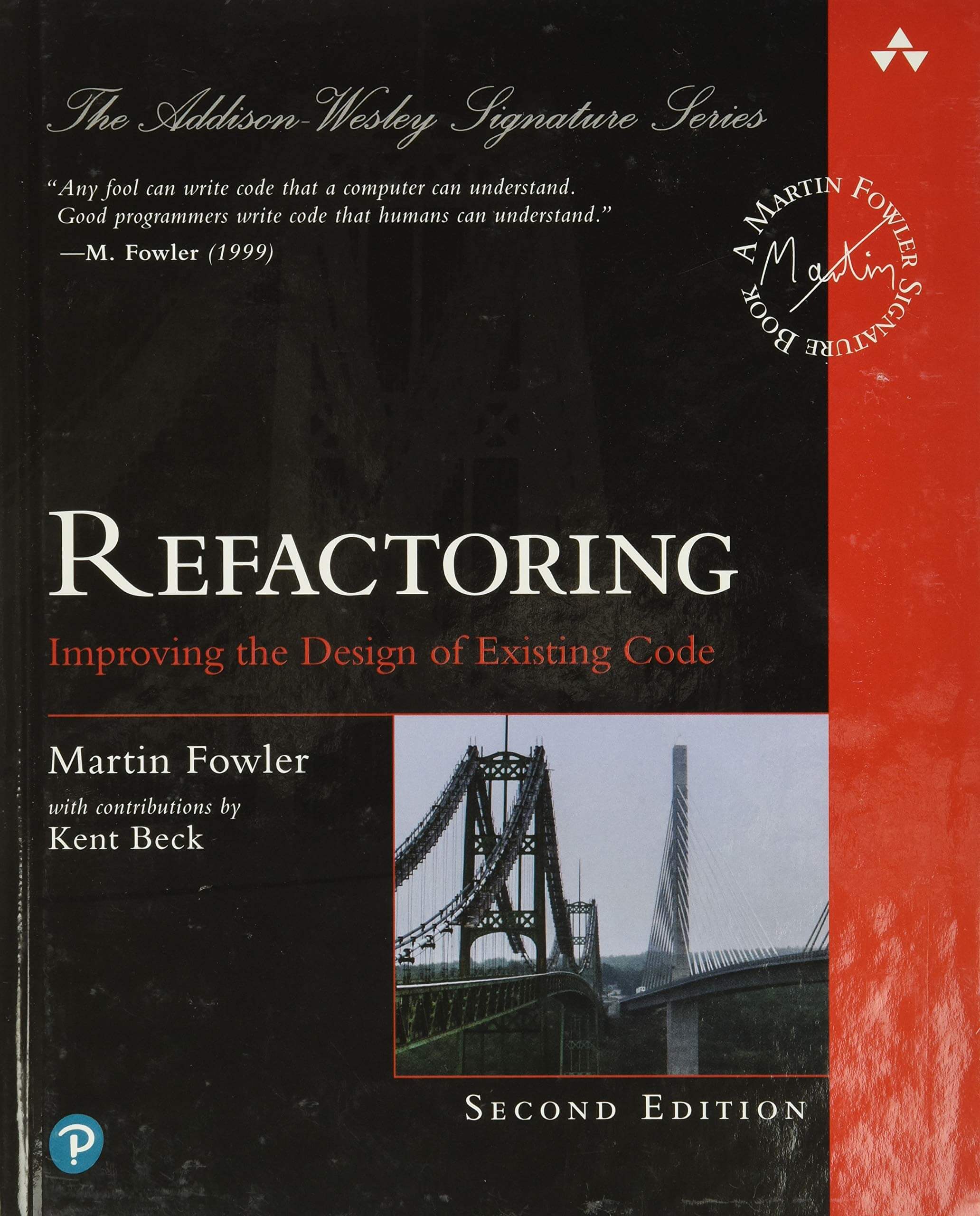
“When you find you have to add a feature to a program, and the program's code is not structured in a convenient way to add the feature, first refactor the program to make it easy to add the feature, then add the feature.”
― Book Excerpt
Programmers who want to improve their coding skills should start with this book. Clarity and precision are the trademarks of the author's writing style. The book Refactoring is pretty much self-contained and easy to understand, so you don't have to sift through too much information to understand a listed technique.
The Pragmatic Programmer - Your Journey to Mastery
By David Thomas and Andrew Hunt
As the title suggests this book is about becoming a pragmatic programmer i.e. a programmer who is a true professional in their craft. This book is truly a classic. Published over two decades ago, it talks about the struggles that programmers face day in and day out even to this day.
Generations of programmers have benefited from The Pragmatic Programmer's lessons, using it to understand the essence of efficient software development. Code correctness is only one aspect of becoming a successful programmer. As this book explains, it's also about overcoming the complex difficulties that arise with coding. Reading this book will educate you on how to grow as a developer in a practical manner and how to effectively solve problems.
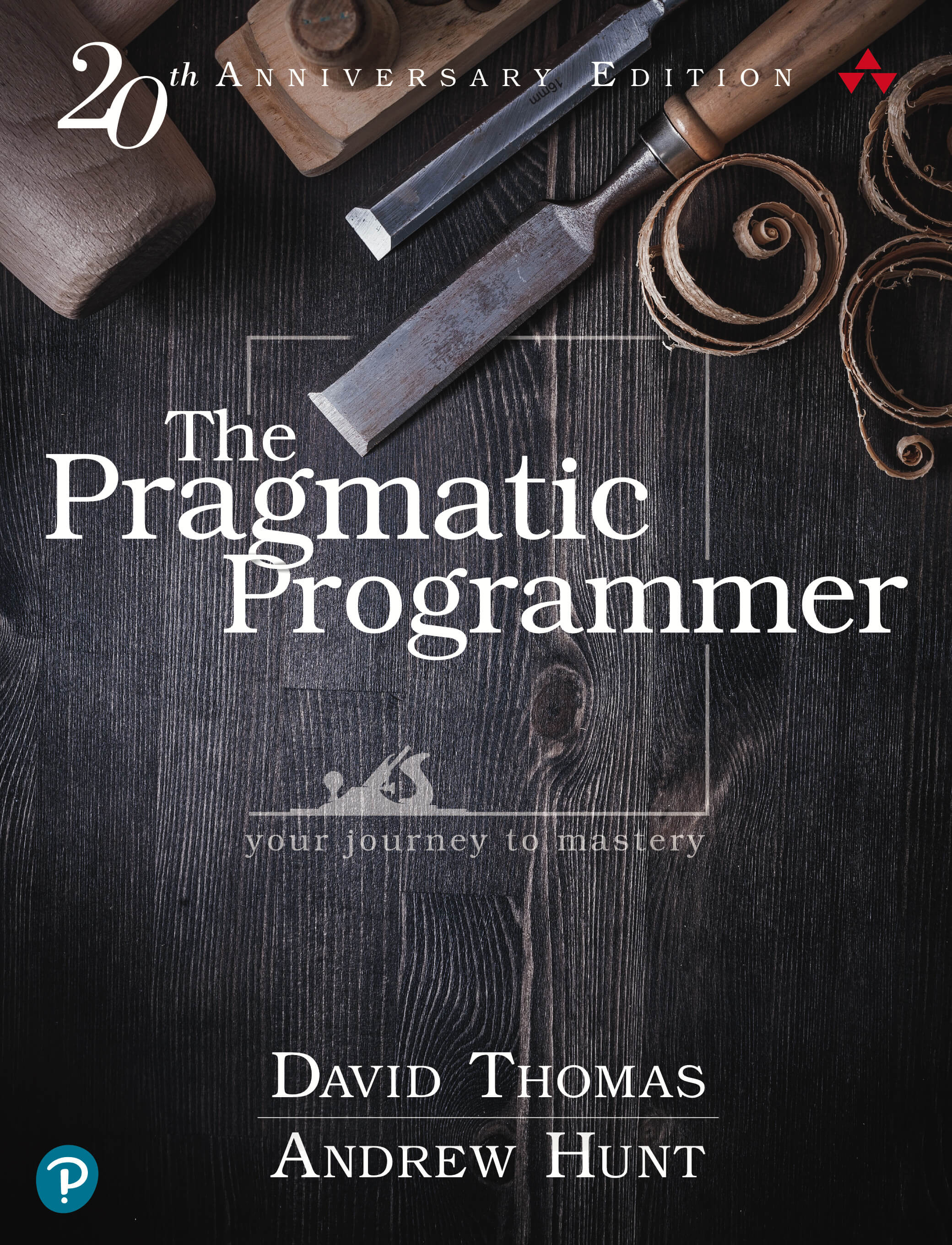
“You Can’t Write Perfect Software. […] Knowing that no one writes perfect code, including themselves, Pragmatic Programmers build in defenses against their own mistakes.” - Book Excerpt
The book delves into software engineering as well as programming. A rare aspect of this book is its pragmatism – the way it informs us with a bundle of tips to upgrade the development method and programming instead of the theoretical process. The book illustrates development methodologies and analogies, for instance, the broken windows theory and the story of the boiling frog. Many concepts coined became famous in this book, like code katas.
The wisdom gained from this book is useful for every programming language. The book touches on interesting spheres like “tracer bullets”, distinguishing opinions from models, expensive tools that do not create better designs, managing expectations, and refraining from duplicate knowledge.
A priceless book, it is bound to transform your coding pattern, habits, and psyche as a programmer.
Anecdotes from the past and the present, well-chosen examples, and thought-provoking parallels make this book a truly delightful read.
The Mythical Man-Month: Essays on Software Engineering
By Frederick P. Brooks
This book is another classic that details the "mythical" or hypothetical concept of a man-month. It describes a man-month as the amount of work a person can complete in one month. The main idea behind this book is to illustrate how adding more people to a project doesn't always mean faster completion of the same.
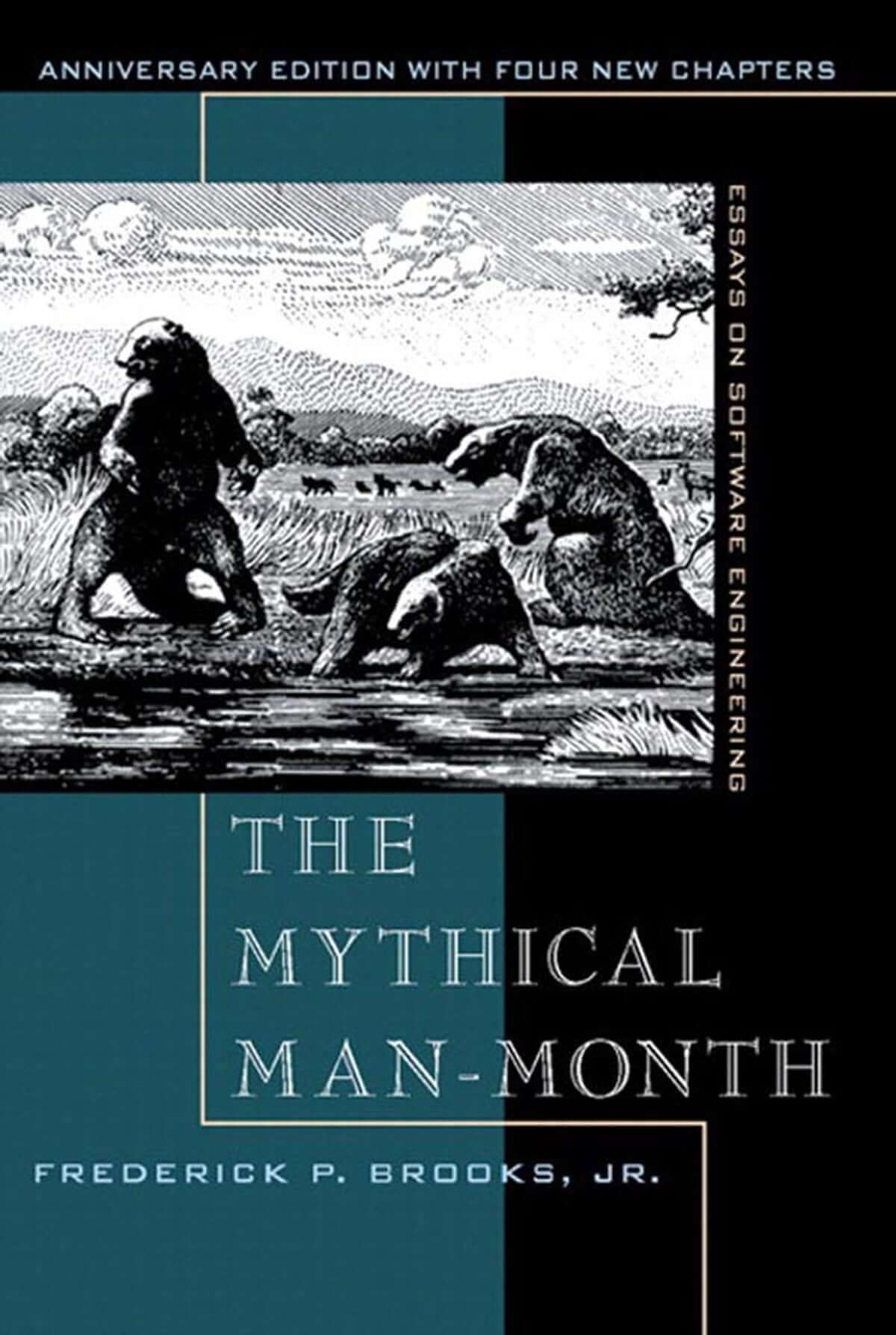
“A baseball manager recognizes a nonphysical talent, hustle, as an essential gift of great players and great teams. It is the characteristic of running faster than necessary, moving sooner than necessary, trying harder than necessary. It is essential for great programming teams, too.” ― Book Excerpt
Written by Fred Brooks, a legendary computer architect, software engineer, and computer scientist and winner of the Turing Award aka the Nobel Prize for Computing. This book is an invaluable resource for project managers and software engineers alike. It is based on Fred’s work as a project manager on IBM's System/360 line of computers, as well as the OS/360 operating system.
The book is regarded as a Bible within the software domain. Though published in the year 1970, every word still sounds more real today compared to previously.
When operating on a second system, you should bear in mind not to over-engineer it, is an idea originating from this book.
Compulsory reading for every developer and project handler.
It starts off well, with a good mix of humor, superb storytelling, and even better analogies and metaphors. What’s fascinating is that Frederick Brooks' theories, made 40 years ago, still stand true today.
Working Effectively With Legacy Code
By Michael C. Feathers
This book by Michael Feathers on contending with large databases has stood the test of time to become one of the most revered works in the world of coding. This 2004 classic explains the author’s strategies for effectively dealing with huge untested databases. Furthermore, this is one of the most actionable resources one can find on the subject.
Other salient features of the book include ways to decouple/modularise monolithic code, and 24 different techniques to introduce change safely. In an age where one might have to wrestle with legacy code on a daily basis, Michael offers lucid insight on how to get more performance, functionality, and manageability out of such systems.
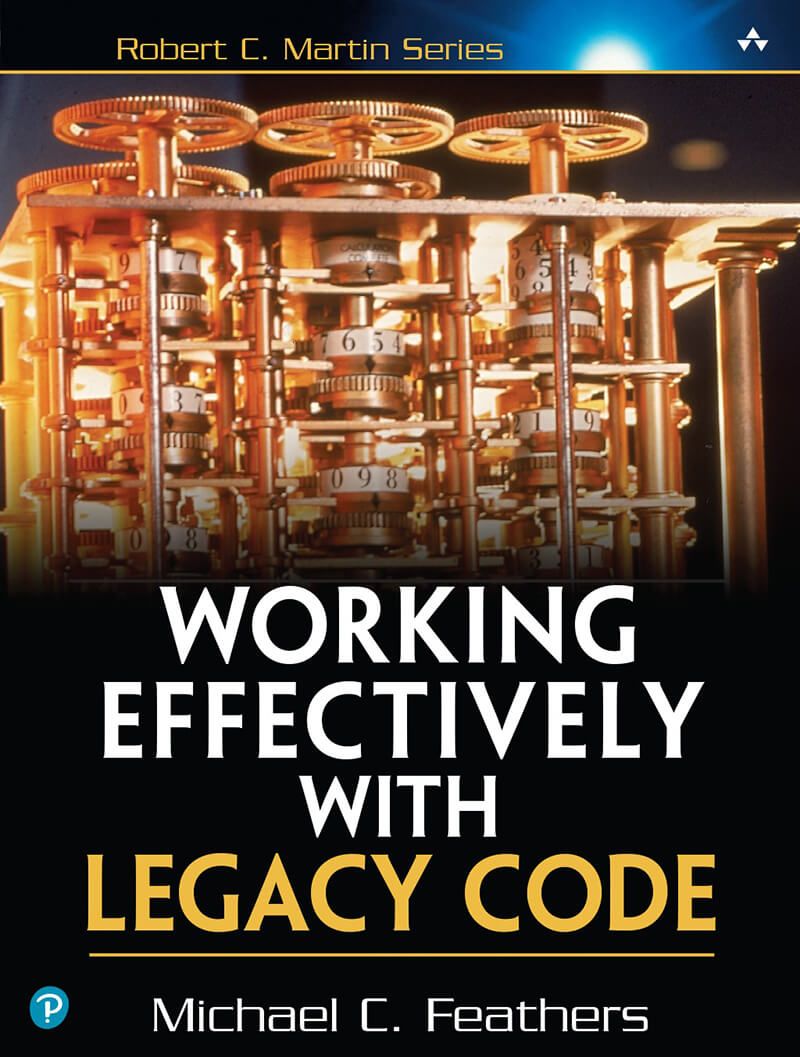
“To me, legacy code is simply code without tests.” ― Book Excerpt
This book will equip you with the necessary know-how to cost-effectively handle legacy problems. Rewriting all of your existing code can be a hassle. Fortunately, Working Effectively With Legacy Code has you covered on that front.
Soft Skills: The Software Developer's Life Manual
By John Z. Sonmez
This famous work shifts from the purely technical aspects of programming to focus on crucial aspects of every developer’s life so as to better prepare them for a successful future. John Sonmez has prepared a stellar career guide for anyone who wants to maximize their growth potential.
From landing the job and climbing the corporate ladder to lifestyle improvements alongside building your own brand, this piece of literature equips you with the resources to excel at each of these important aspects of life. It emphasises not only getting the dream job but also being the best suited for it.
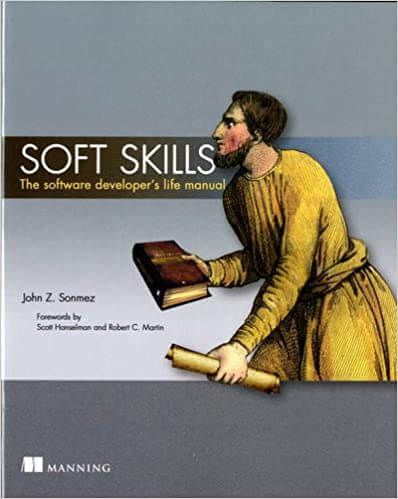
“It’s better to think of an employer as a customer for your business of developing software.” ― Book Excerpt
For most software developers, coding is what brings in money. But the professional part of your job may require you to deal with clients, get financial security, stay productive, etc. This book, which is called a "life manual" is about a bright light for people who want to learn how to get around better in this world.
The writer has imbibed these methods and gained success. He has defined his events in life in brief chapters on Marketing yourself, finances, learning, career, spirit, and productivity. You can glance through these chapters while sipping your coffee, as it is easy to read.
To take you quickly on the road to success in software development, the book “Soft Skills” is the best bet as it addresses all spheres of your life.
The Innovators: How a Group of Inventors, Hackers, Geniuses, and Geeks Created the Digital Revolution
By Walter Issacson
We live in a never before seen ‘digital age’. It’s a thrilling and exciting time to be alive, and nowhere is this digital history better captured than in Isaacson’s influential work. In a marked difference from the rest of this list, this book would appeal prominently to the general public, but especially so to the technically inclined amongst us.
The digital revolution which empowered all of mankind didn’t just emerge overnight. Instead, it was pieced together slowly, starting with Ada Lovelace’s analytical engine, all the way to the development of the all-encompassing Internet. Many consider The Innovators to be one of the most distinguished works of this era.
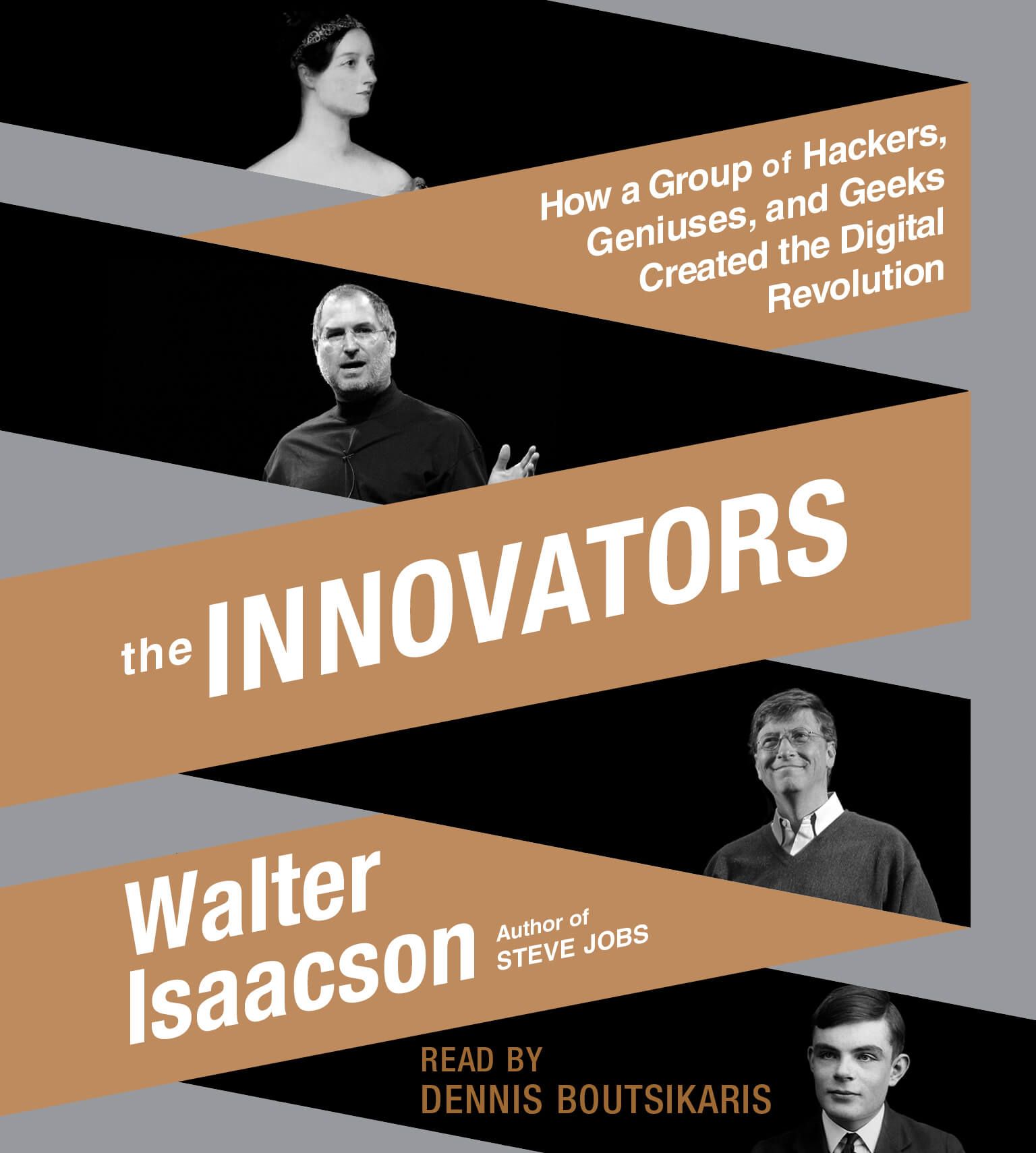
“Knowing that great conceptions are worth little without precision execution” ― Book Excerpt
The book offers a global perspective, whilst giving insights into the landmark developments in this new digital age. It definitely deserves a spot on your wishlist this summer.
The Inmates Are Running the Asylum
By Alan Cooper
The Inmates Are Running the Asylum explains how computer technology is incorporated into basically every manufactured product. The new technology is hard to use because the developers who are developing don’t focus on who they are building it for.
In his book, Cooper makes an urgent plea to the business world to hold software development to the same standards and methodologies that have long been used in the physical design and manufacturing industries, as well as architecture, construction, and civil engineering. Rather than just writing code, it recommends that software should be designed from the bottom up.
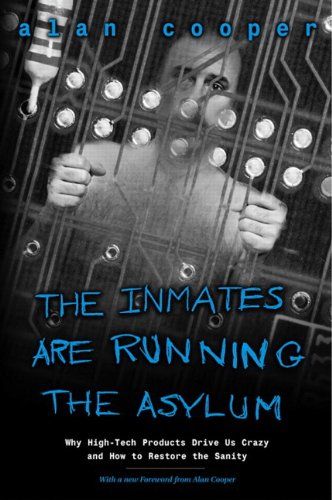
“You can predict which features in any new technology will be used and which won't. The use of a feature is inversely proportional to the amount of interaction needed to control” ― Book Excerpt
This is a good book to start with if you're a rookie software developer. Developers should understand the significance of determining their target audience. You will not be able to please anyone if you strive to please everyone.
Don’t Make Me Think: A Common Sense Approach to Web Usability
By Steve Krug
Building a successful website is much more than just technology and design; it is also about usability. It includes human psychology more than most people realise. Steve Krug's book provides useful principles and standards for creating outstanding, usable websites. The function and design of every website should be so simple that people would barely need to think about it.
There are multiple instances to exemplify his arguments, and it even serves to explain how different stakeholders in web projects can all contribute to the site's usability.
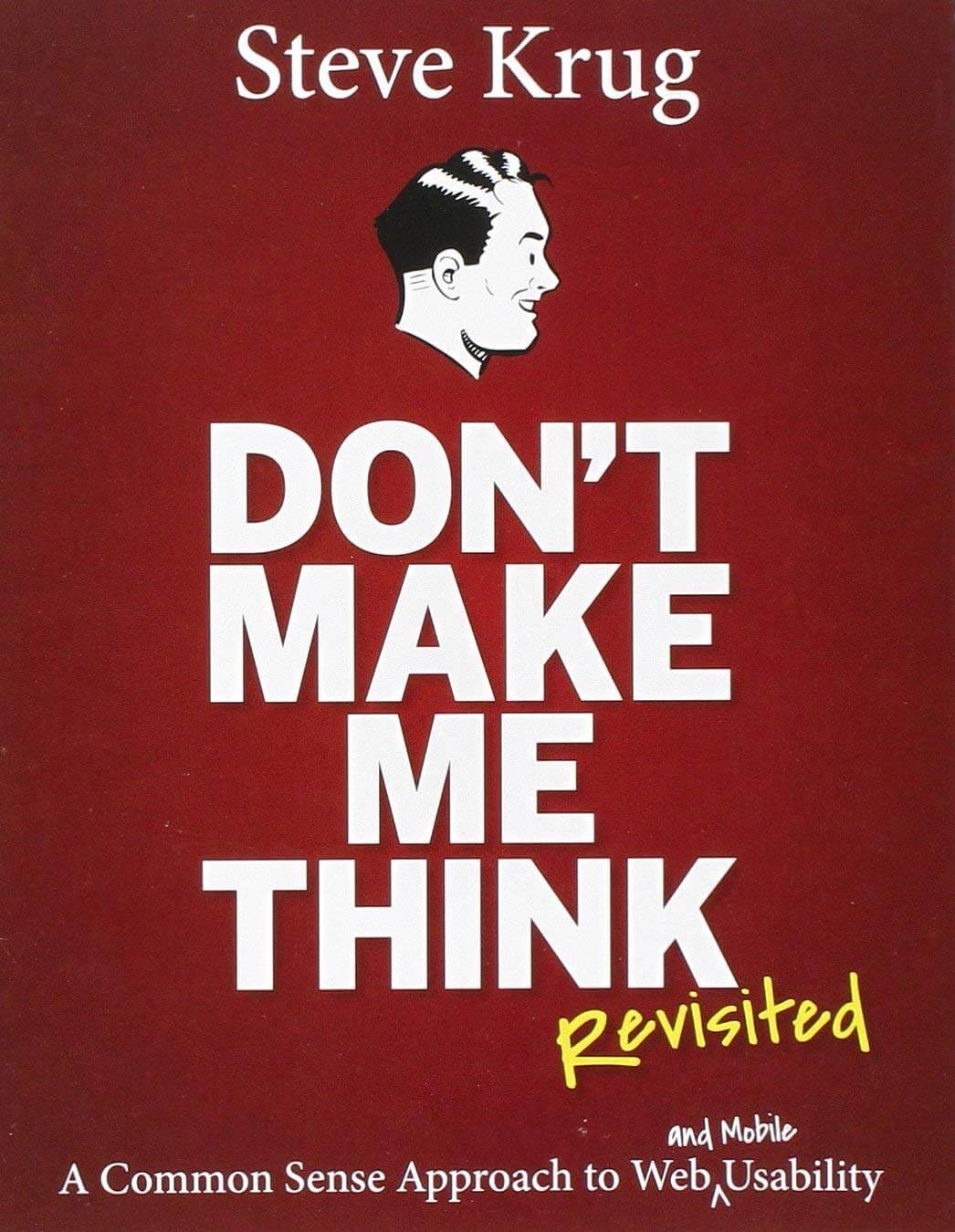
“If there's one thing you learn by working on a lot of different Web sites, it's that almost any design idea—no matter how appallingly bad—can be made usable in the right circumstances, with enough effort.” ― Book Excerpt
Steve Krug possesses a light writing style with a dash of wit that holds your interest from start to end. Everything is logical and concise. There is nothing that does not convey the chapter's theme. It is a contemplative book for developers that will assist you in understanding the technical needs of adopting usability.
Conclusion
So here it is, a few books we highly recommend every programmer must read. When it comes to programming, your mind is your most potent tool and you need to continuously feed it new information in order to get the most out of it. It can only be accomplished through reading. There are “n” number of problems to be solved, but there would always be a book you could refer to find the right way to approach a certain problem.
Get set to explore the realm of programming with these books and comprehend the core concept and thought behind them.
Most programmers do not even read one book per year, but those who do are one step ahead of everyone else. So, what are you waiting for? Choose any that interests you and read away.
FAQs
Why should programmers read books?
Programmers should read books frequently because they assist in developing their coding skills, cultivate their capacity for problem-solving, and open their eyes to new ideas. Books are an essential resource for anyone working in the technology sector because they also offer insightful information on the development of software and professional behaviour.
What topics do the recommended books cover?
Clean code writing, software craftsmanship, refactoring, project management, dealing with legacy code, developing soft skills, the history of digital innovation, and online usability are just a few of the themes covered in the suggested books. These books are crucial for programmers who want to succeed in their jobs since they provide a thorough understanding of programming and all of its facets.

